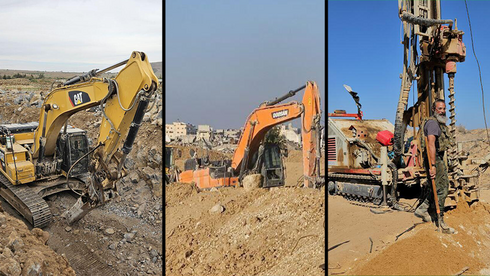Combat Engineering Corps Faces Growing Demand Amid Ongoing Fighting
The Israeli Defense Forces (IDF) is facing a growing demand for engineering capabilities amid prolonged fighting across multiple arenas. To address this challenge, the IDF plans to establish an additional regular combat engineering battalion in the coming months, adding to the existing three. However, this move is only a partial solution.
In recent months, the IDF has increasingly relied on civilian contractors for operational missions in combat zones, under the command of IDF officers. Civilian contractors have been deployed to level hundreds of buildings in the Netzarim Corridor in northern Gaza, drill for Hamas tunnels in areas like the Philadelphi Corridor in southern Gaza, and clear space for safer IDF operations.
The trend has extended beyond Gaza, with contractors working in Lebanon to clear vast thickets where Hezbollah has hidden military infrastructure, and along the Syrian border, where they have been active on five major sites. The contractors’ tasks include blasting basalt cliffs, digging deep trenches, and building embankments to secure the border with a disintegrating Syria teeming with armed militias.
The use of civilian contractors creates flexibility, allowing the IDF to deploy heavy mechanical equipment companies in the most advanced and dangerous missions, while deploying contractors in “safer” missions behind them. Hundreds of IDF engineering soldiers have been injured and killed throughout the long fighting, leading the IDF to turn to civilian contractors through regular procedures carried out by the Defense Ministry.
The method works as follows: the IDF defines a specific, time-bound task, and a request is issued for a civilian contractor who shows up with his workers and large equipment to operate in daylight, under the protection of soldiers and the supervision of IDF engineering units. The civilian workers leave the area in the evening and return the next day to continue the work.
The contractors are paid according to their type of work, with private individuals receiving the highest payment, operators under companies being paid hourly, and those who served in the IDF and want to do so as reservists enjoying all the grants and benefits for reserve personnel.
Some civilian engineering missions in Gaza have reached the front lines, with battalion commanders deploying teams to demolish buildings used to fire on IDF forces. In several recent cases, contractors were spotted working without protective gear such as helmets, overalls, or uniforms.
The IDF has acknowledged the growing use of civilian contractors in combat zones, stating that the contractors understand the risks and sign off on them. The IDF provides them with protection, but notes that they are not trained to work with IDF commandos at night and only operate during the day. The contractors bring engineering expertise, like drilling, that is nearly nonexistent in the IDF, and give the IDF “breathing space.”

